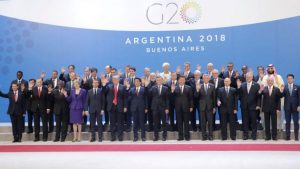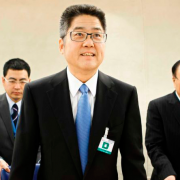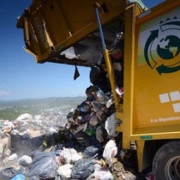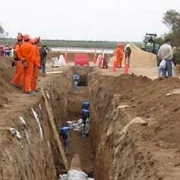What the G20 summit in Argentina left us
After a year of meetings and activities, between November 30 and December 1, the G20 Summit was held in the City of Buenos Aires, the first held in South America. It counted with the presence of the main world leaders; and although it was considered a logistical success by the national government, it did not produce great results in multilateral terms.
“Below, we offer a google translate version of the original article in Spanish. This translation may not be accurate but serves as a general presentation of the article. For more accurate information, please switch to the Spanish version of the website. In addition, feel free to directly contact in English the person mentioned at the bottom of this article with regards to this topic”.
The G-20 leaders summit organized this year by Argentina as president “pro tempore” of the forum took place in a context marked mainly by the trade war between the United States and China; and the internal difficulties that a large part of the leaders of the countries that make up the group are facing. Among them, undoubtedly highlight the civil protests that check the government of Emmanuel Macron in France, the accusations against Saudi Crown Prince Mohammed Bin Salman for the death of a journalist; and even the economic crisis facing the national government in Argentina, to which were added also the internal and external doubts regarding the capacity of the government of Mauricio Macri to organize an event of the magnitude of the G-20.
In any case, once the summit was concluded, the organization of the summit was considered a success by the government, and a final document was even signed (although its commitments are very lukewarm) despite the few probabilities that existed of achieving a consensus among member countries. The Declaration of the G20 2018 leaders emphasizes equitable and sustainable development as a challenge that all States face. Among the issues mentioned in the Declaration are the pillars on which the summit worked on a priority basis this year, at the decision of the Argentine government itself, namely: the Future of Work, Infrastructure for Development, Food Security and a perspective gender mainstreaming that covered the entire G20 agenda. The Declaration also mentions in certain passages certain international commitments regarding Climate Change and the Paris Agreement (although the United States expressed in the Declaration its decision to withdraw from the Agreement); international financial institutions and the need to strengthen the IMF and the World Bank; gender equality and access to health, among others. Regarding Infrastructure, the Declaration states: “In order to address the persistent infrastructure financing gap, we reaffirm our commitment to attract private capital for investment in infrastructure. To achieve this, we endorsed the Roadmap to Infrastructure As an Asset Class “
Recall that the G20 is an international forum that is composed of 19 states and the European Union: Germany, Saudi Arabia, Argentina, Australia, Brazil, Canada, China, South Korea, the United States, France, India, Indonesia, Italy, Japan , Mexico, Russia, United Kingdom, South Africa and Turkey. Spain is a permanent guest. In addition, the country that chairs the forum elects other guests, and for this year Argentina invited Chile and the Netherlands.
The work areas of the G-20 are: finance, agriculture, anticorruption, trade and investment, development, digital economy, education, employment, health, climate sustainability and energy transitions.
Although the Summit in Buenos Aires did not produce resonant agreements at the multilateral level, the event was without doubt positive for the national government, which comes out strengthened by the organization without major inconveniences of the event; and above all, by the agenda of meetings and bilateral agreements with other nations that took place in the framework of the Summit. Thus, the government of Cambiemos managed several bilateral meetings and closed a series of investment and commercial agreements with the purpose of promoting the country’s economic development. Thus, of the 17 bilateral meetings that the government carried out and the more than 50 agreements signed, the following stand out:
-
30 commercial agreements between China and Argentina that represent around 5000 million dollars. The Joint Action Plan signed covers issues related to investments, infrastructure, railways, thermal energy, solar, wind, mining, health, transportation and education, among others. They include the commercial contract to reactivate the San Martín Cargas railroad, whose initial investment will be 1089 million dollars and will be in charge of the Chinese company CRCC (China Railway Construction Corporation Limited); and the signing of protocols for the entry of standing equines, sheep and goats from Patagonia to China and a sanitary protocol to export Argentine cherries.
-
In turn, with China, investment agreements were also signed for projects of Public-Private Partnerships (PPPs) in the area of energy and transport (routes); and it was agreed to expand the swap (exchange) of currencies in the amount of 60 billion yuan (equivalent to 8,600 million dollars) that will be used to strengthen the reserves of the Central Bank.
-
With the United States, the most relevant agreement was reached with the letters of intent signed with the investment agency of the United States, Overseas Private Investment Corporation (OPIC), which is expected to mobilize more than 3 billion dollars. Some of these letters of intent with the OPIC contemplate the financial backing for the PPP project of the C Corridor section (Buenos Aires-Mendoza); and projects on solar energy (the Ullum I, II and III projects); wind energy (North Chubut III and IV); wind energy (Cañadón León wind farm in Santa Cruz); and works for a gas pipeline in Vaca Muerta.
-
With France, a financing agreement for 360 million dollars was made to recover the capacity of maritime naval patrols, and agreements in the cultural and educational field.
-
With the European Investment Bank, it was agreed to finance expansion and improvement works in potable water services for the metropolitan area and the suburbs of Buenos Aires; and the consolidation of the Integral Management of Residues and Energy Valorization in Jujuy.
- The Heads of State of Japan and Argentina signed a Bilateral Investment Treaty between both countries, which aims to encourage Japanese investments in various sectors of the Argentine economy.
-
With the Russian Federation, a Fisheries and Aquaculture Agreement and a strategic document on the cooperation between Argentina and Russia in the field of the peaceful use of nuclear energy were signed.
Beyond the Summit
It is worth remembering that the Summit held in Buenos Aires was just the end of a much more extensive process that began at the end of November 2017 when Argentina assumed the “pro tempore” presidency of the G-20 at the end of November 2017 and culminated with the transfer of it to Japan. During the course of this year numerous meetings and events were held within the framework of the G20, as well as intense work in each of the affinity groups of the forum: Business 20 (B20, which encompasses the private sector); Civil 20 (C20, which includes civil society); Labor 20 (L20, which includes unions and workers); Science 20 (S20, which encompasses the scientific community) Think 20 (T20, which includes Think Tanks and the academic community); Women 20 (W20, which includes women) and Youth 20 (Y-20, which includes young people).
In the case of FUNDEPS, we actively participate in Civil 20, where we co-coordinate, together with Eurodad, one of the 8 working groups of the C20 for this year: the Investment and Infrastructure group. During the course of the year the group worked virtually and even met twice, both for the meeting of working groups and for the Summit of the C-20 held in Buenos Aires in April and August respectively. The result of the work of the working groups of the C20 was reflected in a document with policy recommendations, which was delivered to President Macri during the C20 Summit and constituted an input from civil society for the discussions that took place in the frame of the G-20.
More information
Declaración de Líderes del G20. Construyendo consenso para un desarrollo equitativo y sostenible
Policy Pack: Recomendaciones del C20 al G20 de 2018
Documento del sub-grupo sobre Financiamiento de Infraestructura
Documento del sub-grupo sobre Conducta Empresarial Responsable
La sociedad civil presenta recomendaciones al G20 en la Cumbre del Civil-20 – FUNDEPS – 15/08/2018
La sociedad civil se reunió en el C20 – FUNDEPS – 17/04/2018
G20 dejó acuerdos con intención de inversiones por u$s 8.000 millones – ámbito.com
Expectativa y realidad de los acuerdos económicos de Argentina en el G20 – Noticias
Authors
Macarena Mustafá – Sofía Brocanelli
Contact
Gonzalo Roza / Coordinador del Área de Gobernabilidad Global
gon.roza@fundeps.org







